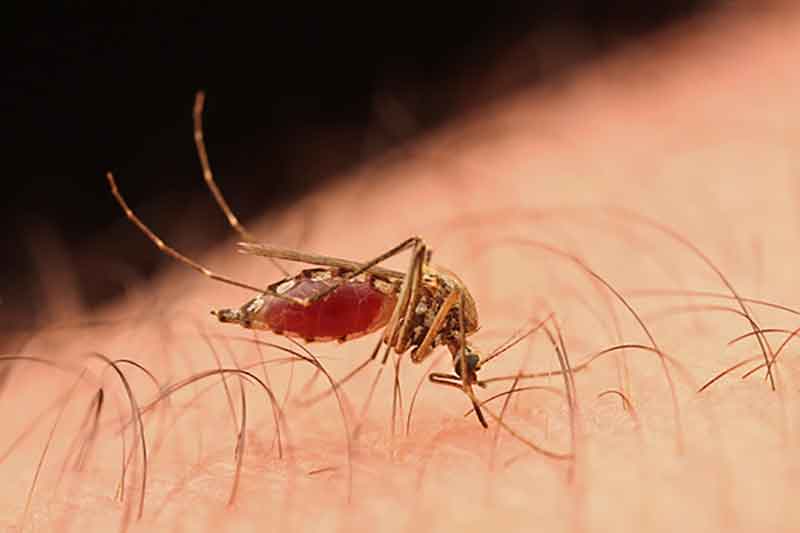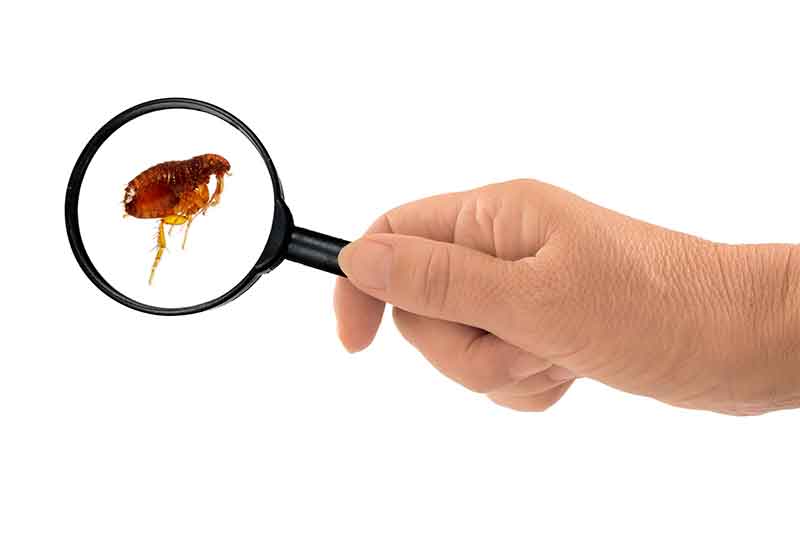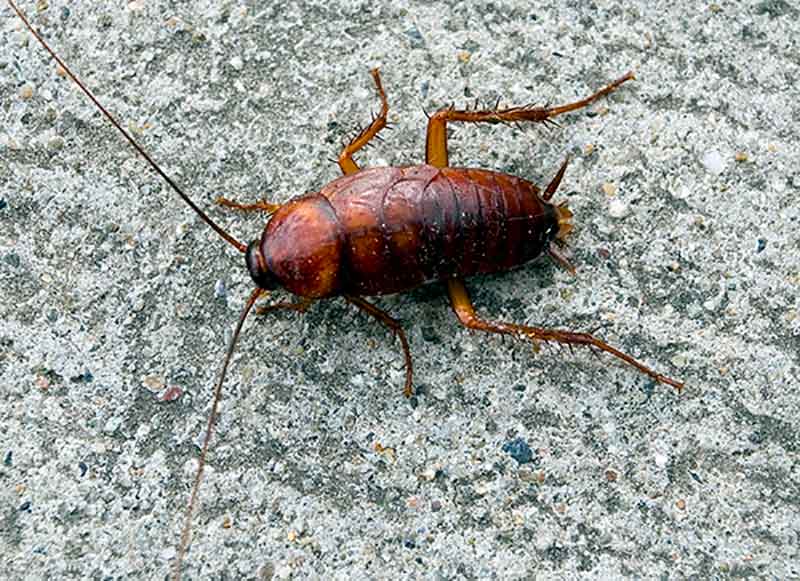How to Protect Your Garden From Spring Pests
Spring brings plenty of sunshine, warm weather and blooming plants, but it also draws a host of irritating and destructive insects. By knowing what to look for and planning your line of defense, you can keep these common outdoor pests from invading your yard and home:
Carpenter Ants

Carpenter ants are large, black ants that live in rotting or moisture-damaged wood. If you encounter a pile of sawdust-like shavings (debris from their tunneling), you're probably close to the nest entrance. But foraging carpenter ants can wander up to 100 yards from their homes, so always be on the lookout.1
Carpenter ants are more than a nuisance: They can cause serious damage to wood structures, including homes. Always store firewood well away from the house and eliminate dead wood, such as brush piles and tree stumps. Correct any gutter or drainage problems around buildings promptly, and never let plumbing drips go unchecked.
If carpenter ant problems arise, create a perimeter of protection around your home and its foundation. Sevin Insect Killer Ready to Spray or Sevin Insect Killer Concentrate kill existing black carpenter ants by contact and continue to protect treated areas against carpenter ant invasions for up to three months.
Mosquitoes

Bloodthirsty mosquitoes can ruin your summer fun. Beginning in early spring, the mosquitoes move from larval stage to maturation quickly, with many generations in a single season. After mating, males search out a flower nectar meal. Female mosquitoes, however, prefer a hemoglobin-rich snack2 — and you fit that bill. To reduce the number of mosquitoes in your yard, prevent them from reaching maturity. Eliminate the most viable environment for eggs and larva — standing water — and treat potential breeding grounds to stop new generations. GardenTech brand's sister brand Amdro offers a highly effective larvicide that prevents mosquito larvae from becoming adults, before they start seeking human meals. It can also be used in areas with standing water you want to keep, such as bird baths or backyard ponds.3 For adult mosquitoes, turn to Sevin Insect Killer Ready to Use2 to kill mosquitoes on contact in outdoor areas and on outdoor surfaces, including porches, patios, eaves, and window frames or screens. Infected mosquitoes are behind a number of serious health threats, including the Zika and West Nile viruses. They also may transmit parasites, including canine heartworms,4 so control is essential.
Fleas

Tiny jumping and biting insects, fleas are ectoparasites, meaning they live on and feed on the outside of their animal hosts. Fleas can affect dogs, cats, wildlife — and humans. Wildlife may bring them into your yard, and pets may bring them indoors.5
Identifying fleas by sight is difficult because of their size. The only way you may know they're nearby is when you suffer a bite. Scratching pets are also signs of a flea problem. Use Sevin Insect Killer Lawn Granules on lawns, home perimeters and even edible and ornamental gardens. The granules kill flea larvae and adults by contact and keep protecting treated areas against fleas for up to three months. However, never use any lawn and garden pesticide directly on your pets.
Spiders
Most spiders aren't harmful to people; their sole focus is catching and eating insects. Of course, the few poisonous spider species that are common in the United States, such as black widow and brown recluse spiders, are harmful enough to give all spiders a bad reputation.6
Glistening webs in and around your home are sure signs that spiders are about, but dusty webs signify spiders have moved on. If you notice fresh, active webs, take preventative steps: Seal cracks in your home's foundation and repair small openings around window panes and doors. Then use Sevin Insect Killer Concentrate to treat plantings and home foundations up to a height of 3 feet. Use Sevin Insect Killer Lawn Granules around your home's perimeter to keep spiders from coming inside.
Wasps

Wasps help control other insect populations, but their painful stings make them unwelcome. An active wasp nest near an area where people congregate, work or relax is a huge danger. If you find a nest, use caution. Wasps are often aggressive, especially when threatened, so consider hiring a professional to remove a large nest rather than removing it yourself.
Sevin Insect Killer Ready to Spray and Sevin Insect Killer Concentrate kill wasps by contact, but they won't harm plants, blooms or lawns. Then they keep on working to protect against wasps for up to three months and discourage nest building in fruit and vegetable gardens, ornamental and flower gardens, and around your home. You can even treat home foundations up to a height of 3 feet.
The wasp family includes hornets, mud daubers and yellow jackets, which are especially attracted to food and drink.7 So always tightly close trash and recycling containers.
Cockroaches

Cockroaches have earned their nasty reputation. They carry bacteria including salmonella, and, because they scavenge human food, cockroaches can contaminate kitchen surfaces and utensils. Additionally, their frass, or droppings, and other litter can make already-painful allergy and asthma symptoms worse.8
Cockroaches are constantly in search of food, water and a dry home. Your first defense is to protect your home's perimeter so that cockroaches never make it inside. Seal any cracks and crevices in foundations and around windows and doors, then use an effective pesticide. Sevin Insect Killer Ready to Use2 kills cockroaches on contact. For longer-lasting protection or larger areas, turn to Sevin Insect Killer Concentrate or Ready to Spray to kill by contact and protect against cockroaches for up to three months.
Regional Timeline for Spring Pests
- Northeast: Pest activity increases from April/May until September/October.
- Central: Pests appear in March/April and remain active until September/October.
- West: Insects emerge as early as February in parts of California, Arizona, and New Mexico. They emerge in March/April for the rest of the region and are active until September/October.
- South: Insect pests appear as early as February/March and are active until October/November.9
When spring pests strike, don't delay. Have your plan of action ready. Pursue both preventive and defensive measures to keep your yard and home pest-free. With the help of GardenTech and trusted Sevin brand garden insecticides, you can greet spring prepared for whatever the season holds.
Always read product labels thoroughly and follow instructions, including guidelines for listed plants and pests, application frequency and pre-harvest intervals (PHI) for edible crops.
Sevin is a registered trademark of Tessenderlo Kerley, Inc.
GardenTech is a registered trademark of Gulfstream Home and Garden, Inc.
Amdro is a registered trademark of Central Garden & Pet Company.
Sources:
1. Illinois Department of Public Health, "Prevention and Control: Carpenter Ants."
2. The American Mosquito Control Association, "Biology."
3. United States Environmental Protection Agency, "Bti for Mosquito Control."
4. The American Mosquito Control Association, "Mosquito-Borne Diseases."
5. M.K. Rust, "How to Manage Pests: Fleas," University of California Statewide Integrated Pest Management Program, September 2010.
6. J. Hahn, P. Pellitteri and D. Lewis, "Potentially Dangerous Spiders," University of Minnesota Extension.
7. Illinois Department of Public Health, "Prevention and Control: Bees and Wasps."
8. J. Hahn and M.E. Ascerno, "Cockroaches," University of Minnesota Extension.
9. NOAA National Centers for Environmental Information, "When to Expect Your Last Spring Freeze."
Get Monthly Gardening Advice!





